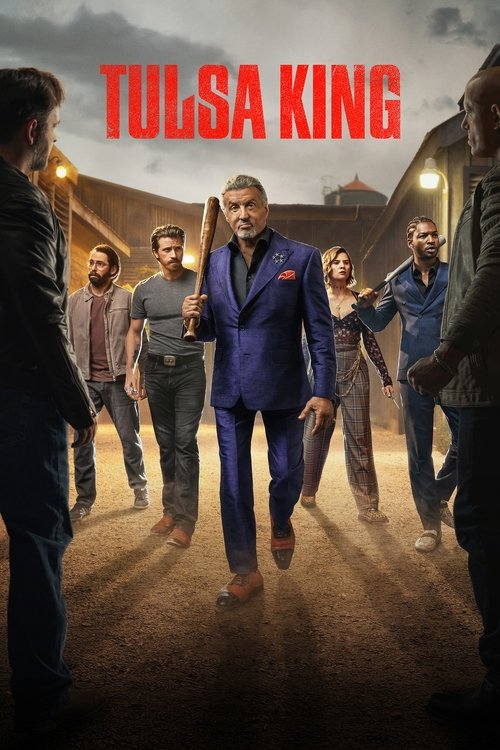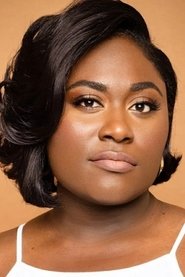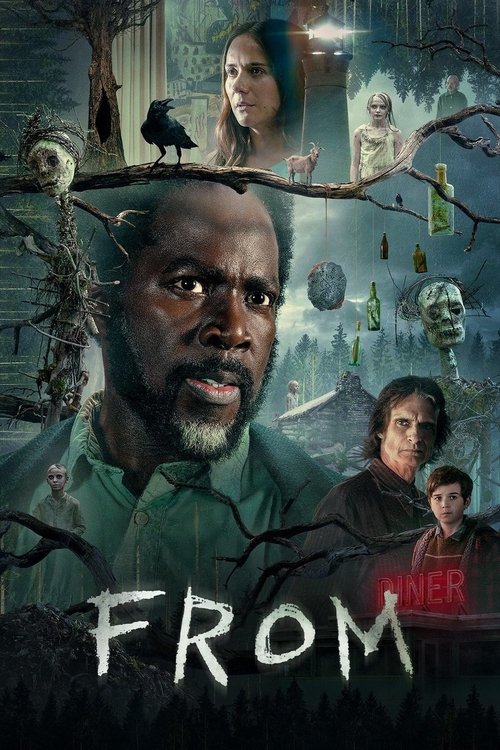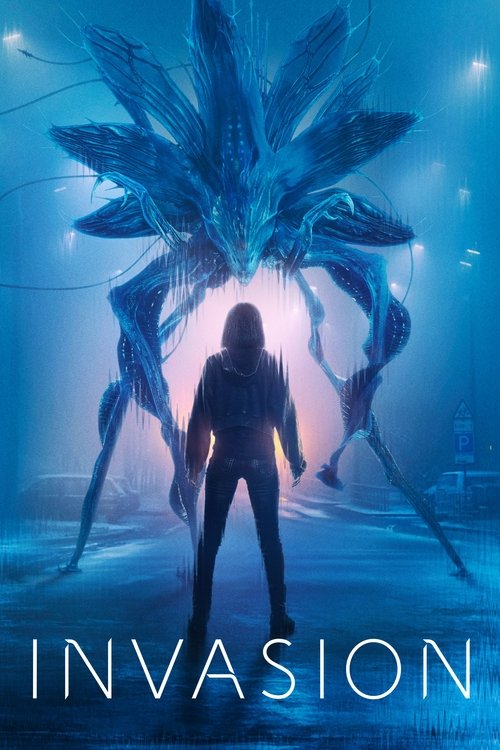
Ask Your Own Question
What is the plot?
The series opens with Christopher Smith, also known as Peacemaker, recovering in a hospital after the events of "The Suicide Squad." He is greeted by a government agent named Clemson Murn, who informs him that he is being recruited for a new mission. Murn explains that Peacemaker's skills are needed to combat a new threat, and he is offered a chance to work with a team of operatives. Peacemaker, eager to prove himself, agrees to join the mission.
Peacemaker is introduced to his new team, which includes the tech-savvy vigilante, John Economos, the skilled marksman, Leota Adebayo, and the tough-as-nails soldier, Emilia Harcourt. The team is tasked with investigating a mysterious alien species known as the Butterflies, which have been infiltrating human hosts. The first mission takes them to a remote location where they encounter a Butterfly in a human form. Peacemaker, driven by his desire for peace at any cost, insists on taking the lead, resulting in a chaotic confrontation where he kills the host, much to the dismay of his teammates.
As the team continues their investigation, they discover that the Butterflies are using human bodies to carry out their plans. They learn that the Butterflies are not just a threat to humanity but are also responsible for the deaths of many people. Peacemaker's motivations become more complex as he grapples with his own violent tendencies and the moral implications of his actions. He struggles with the idea of what true peace means, often clashing with Adebayo, who challenges his black-and-white worldview.
The team receives intel about a high-ranking Butterfly leader, and they plan an ambush. During the ambush, Peacemaker's impulsiveness leads to a series of mistakes, resulting in the team being outnumbered and forced to retreat. This failure weighs heavily on Peacemaker, who feels the pressure to prove himself and regain the team's trust. He begins to question his own methods and the consequences of his actions.
In a pivotal moment, Peacemaker discovers that his father, Auggie Smith, is involved in a white supremacist group that is also connected to the Butterflies. This revelation complicates Peacemaker's relationship with his father, who has always been a significant influence in his life. Peacemaker confronts Auggie, leading to a violent altercation that forces him to choose between his father's ideology and his own beliefs about justice and peace.
As the team continues to unravel the Butterflies' plans, they learn that the aliens are planning a large-scale invasion. The stakes are raised when they discover that the Butterflies have taken over key political figures, including the Vice President. Peacemaker's internal conflict deepens as he grapples with the idea of killing innocent people to stop the invasion. He begins to form a bond with Adebayo, who helps him see the value of empathy and understanding.
In the climax of the season, the team launches a final assault on the Butterflies' stronghold. Peacemaker, fueled by a mix of anger and determination, leads the charge. The battle is intense, with the team facing overwhelming odds. Peacemaker's skills are put to the test as he fights through hordes of Butterflies, showcasing both his combat prowess and his internal struggle.
During the confrontation, Peacemaker is forced to make a critical decision when he encounters a Butterfly that has taken the form of a child. In a moment of clarity, he hesitates, reflecting on the innocence of the child and the consequences of his actions. This moment of vulnerability marks a turning point for Peacemaker, as he begins to understand the true meaning of peace and the value of life.
The season concludes with the team successfully thwarting the invasion, but not without significant losses. Peacemaker is left to confront the aftermath of his choices, both in terms of his relationships with his teammates and the legacy of his father's influence. The final scenes hint at unresolved tensions and the potential for further conflict, setting the stage for future developments in Peacemaker's journey.
What is the ending?
In the ending of "Peacemaker," Season 1, Chris Smith, also known as Peacemaker, confronts the final battle against the Butterflies, alien creatures that have taken over human bodies. After a fierce showdown, he and his team manage to defeat the Butterflies, but not without significant personal costs. The season concludes with Peacemaker reconciling his violent tendencies and the complexities of his character, while also setting the stage for future conflicts.
As the final episode unfolds, we find ourselves in a tense standoff. The team, consisting of Peacemaker, Vigilante, Harcourt, and Economos, is on a mission to stop the Butterflies from executing their plan to take over the world. The atmosphere is thick with urgency and dread as they infiltrate the Butterflies' stronghold, a warehouse filled with the alien creatures.
Scene by scene, the action escalates. Peacemaker, driven by his desire to prove himself as a hero despite his violent methods, leads the charge. His internal conflict is palpable; he grapples with the morality of his actions and the legacy of his father, who instilled in him a twisted sense of justice. As they engage in combat, the team showcases their unique skills, with Vigilante providing comic relief amidst the chaos, while Harcourt and Economos display their tactical prowess.
During the climactic battle, Peacemaker faces off against the leader of the Butterflies, a formidable opponent who embodies the very chaos Peacemaker seeks to eliminate. The fight is brutal, showcasing Peacemaker's physicality and determination. However, it also reveals his vulnerabilities, as he struggles with the weight of his past decisions and the lives he has taken.
In a pivotal moment, Peacemaker is forced to confront the consequences of his actions when he is presented with a choice that could save the world but at a great personal cost. This moment of reckoning leads him to make a decision that reflects his growth as a character. He chooses to save his team over fulfilling his own violent impulses, marking a significant shift in his character arc.
As the dust settles, the team emerges victorious, but not unscathed. Harcourt is injured, and her fate hangs in the balance, leaving Peacemaker to grapple with the reality of loss and the impact of his choices on those he cares about. Economos and Vigilante, while relieved to have survived, are left to process the trauma of their experiences.
In the final scenes, Peacemaker stands alone, reflecting on his journey. He is no longer just a man defined by his violent past; he begins to understand the importance of connection and the complexities of heroism. The season ends with a sense of ambiguity, as Peacemaker's future remains uncertain, but he is now more aware of the moral gray areas that define his existence.
The fates of the main characters are as follows: Peacemaker, having survived the battle, is left to navigate his newfound understanding of heroism; Harcourt, injured but alive, represents the cost of their mission; Vigilante and Economos, while shaken, remain loyal to Peacemaker, hinting at future adventures together. The season closes with a sense of hope and the promise of further exploration of these characters' journeys.
Is there a post-credit scene?
Yes, there is a post-credit scene in the first season of "Peacemaker."
As the episode concludes, the screen fades to black, and the credits roll. After the credits, the scene opens in a hospital room where we see a familiar face: Adebayo, who is sitting beside a bed. The camera pans to reveal that the bed is occupied by a comatose and heavily bandaged figure--this is none other than the character known as "Vigilante," who has been a quirky and somewhat unpredictable ally throughout the season.
Adebayo, with a mix of concern and exasperation, begins to talk to Vigilante, expressing her hope that he will wake up soon. She reflects on their recent adventures and the chaos they faced, revealing her growing fondness for him despite his oddities. The scene captures her emotional state, showcasing her vulnerability and the weight of the events they endured together.
Suddenly, Vigilante stirs, and his eyes flutter open. He looks around, confused, and then locks eyes with Adebayo. In a moment of levity, he asks her if he missed anything important, to which she responds with a smirk, indicating that he has indeed missed a lot. The scene ends on a humorous note, highlighting the show's blend of action and comedy, and leaving viewers with a sense of anticipation for what might come next in the story.
This post-credit scene serves to reinforce the bond between the characters and hints at future developments, maintaining the show's signature tone of irreverent humor mixed with heartfelt moments.
What role does Vigilante play in Peacemaker's journey?
Vigilante, also known as Adrian Chase, serves as both a sidekick and a foil to Peacemaker. His overzealous and often reckless approach to crime-fighting contrasts sharply with Peacemaker's more calculated methods. Throughout the season, Vigilante's unwavering loyalty and dark humor provide comic relief, but they also challenge Peacemaker's views on morality and justice, pushing him to question the extremes he is willing to go to in order to achieve peace.
What is the significance of the butterfly in Peacemaker's mission?
The butterfly serves as a central plot element in Peacemaker's mission, representing a mysterious alien species that poses a threat to humanity. Throughout the season, Peacemaker and his team, known as the 'Butterfly Task Force,' are tasked with eliminating these creatures, which have taken over human hosts. The butterflies symbolize a deeper commentary on control and the nature of evil, as they manipulate their hosts to achieve their own goals.
How does Peacemaker's relationship with his father influence his character development?
Peacemaker's relationship with his father, Auggie Smith, is fraught with tension and emotional turmoil. Auggie, who is revealed to be a racist and abusive figure, instills in Peacemaker a warped sense of justice and morality. This toxic relationship drives Peacemaker's internal conflict throughout the season, as he grapples with his father's legacy and his own desire to be a hero, ultimately leading to a pivotal confrontation that forces him to confront his past.
How does the character of Harcourt evolve throughout the season?
Harcourt, played by Jennifer Holland, begins as a no-nonsense leader of the Butterfly Task Force, often clashing with Peacemaker's brash personality. As the season progresses, her character reveals layers of vulnerability and complexity, particularly in her interactions with Peacemaker and the rest of the team. Her evolution is marked by moments of empathy and understanding, as she learns to navigate the chaotic dynamics of the group and ultimately becomes a more integral part of the team's mission.
What is the backstory of the character Murn and his motivations?
Clemson Murn, portrayed by Chukwudi Iwuji, is introduced as the enigmatic leader of the Butterfly Task Force. His backstory is gradually unveiled, revealing that he has a personal vendetta against the butterflies due to a traumatic past. Murn's motivations are driven by a desire for revenge and a sense of duty to protect humanity, even if it means making morally ambiguous decisions. His character adds depth to the narrative, as his hidden agenda and complex relationships with other characters create tension and intrigue throughout the season.
Is this family friendly?
"Peacemaker," season 1, produced in 2022, is not considered family-friendly due to its mature content. Here are some potentially objectionable or upsetting aspects that may affect children or sensitive viewers:
-
Graphic Violence: The show features intense action sequences with significant bloodshed and graphic depictions of violence, including shootings and physical confrontations.
-
Strong Language: Frequent use of profanity and vulgar language throughout the series, which may be inappropriate for younger audiences.
-
Sexual Content: There are scenes that include sexual innuendos, nudity, and discussions of sexual relationships, which may be uncomfortable for some viewers.
-
Dark Humor: The series employs dark and often crude humor that may not resonate well with all audiences, particularly younger viewers.
-
Themes of Trauma and Abuse: Characters deal with complex emotional issues, including trauma, familial abuse, and mental health struggles, which could be distressing for sensitive individuals.
-
Mature Themes: The narrative explores themes of morality, redemption, and the consequences of violence, which may be heavy for younger viewers to process.
Overall, "Peacemaker" is intended for a mature audience and contains elements that could be upsetting or inappropriate for children.




























